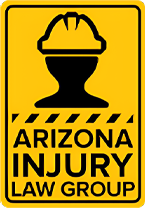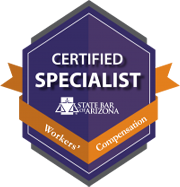|
|
Last Modified on Oct 24, 2024
If you are seeking compensation for an injury, you may be wondering, what is a full and final settlement? Signing a full and final settlement without consulting with an attorney first could lead to serious consequences that you may later regret. The at-fault party or their insurance carrier may have an interest in pressuring you to sign this binding legal document before you fully understand the true value of the compensation you are owed.
The attorneys at Arizona Injury Law Group PLLC bring many years of experience scrutinizing and analyzing these legal documents to ensure that they are not used to deny you the compensation that you deserve.
What Is a Full and Final Settlement For?
A full and final settlement is a lump-sum payment that resolves a worker’s compensation claim. Once you accept this settlement, your claim will be considered settled, and you will not be able to seek further compensation for that specific injury. In other words, you will not be able to request funds in the future for the same injury.
Due to the finality of this type of settlement form, it is advisable to seek legal representation to review the document before you sign it. Insurance carriers are in the business of making profits, and they may try to lowball you with their settlement offer.
What Type of Compensation Can a Full and Final Settlement Cover in Arizona?
A full and final settlement can provide an important source of compensation for your injuries. When worker’s compensation carriers act in good faith and propose a fair settlement, the lump sum payment can cover medical expenses, lost wages, and compensation for disability or other damages you incurred. For example, you may require vocational training following an injury that trains you how to work with your disability.
While this type of payment may sound straightforward, anyone seeking benefits from the worker’s compensation system should consider the full range of expenses they may incur in the future, as well as what they lost up until that point.
Pros and Cons of Full and Final Settlement
If you are considering a full and final settlement, you should consider the pros and cons associated with it. The pros of such an agreement are that you will receive a financial settlement, you can move forward without spending time fighting for every penny, and you have more control over the final settlement arrangement. These pros allow you to move forward. You may also find, however, several cons for accepting a settlement. These could include:
- Forgoing future claims. Once a settlement is reached, you are unable to pursue additional legal actions or settlements.
- The settlement takes time. Negotiations can be difficult and time-consuming. When you think you have reached an agreement, you may find there are more factors to consider, creating a constant back and forth.
- You risk future funds. A lump sum settlement is highly attractive. If, however, your settlement does not consider future medical expenses, you could be left paying future bills on your own after your settlement amount has run out.
Discussing the pros and cons with an attorney can help you decide if this is the right process for you.
How an Attorney Can Help
It is highly advisable to consult with a worker’s compensation attorney before signing a full and final settlement. Forgoing legal representation could mean that you are not fully compensated for your injury. Workers’ compensation insurance carriers sometimes prioritize profits overpaying injured workers what they owe.
If your employer’s insurance does not offer a fair settlement, your lawyer can demand that the offer be increased so you do not have to pay for medical expenses out of your pocket. Your lawyer can provide evidence that shows what you are owed.
Attorneys understand how to review settlement offers. Once one of our lawyers has carefully read over the document and communicated to you whether signing would be in your interest, you can make an informed decision about whether you wish to settle your case.
FAQs
What Is the Exclusive Remedy for Workers’ Comp in Arizona?
Arizona workers’ compensation laws provide the exclusive remedy for workplace injuries, meaning employees generally cannot sue employers for additional damages. Instead, injured workers receive benefits like medical treatment, wage replacement, and disability coverage through workers’ compensation, regardless of who was at fault for the injury. Before engaging in exclusive remedy, be sure to discuss your circumstances with your attorney to ensure it is the right decision for you.
What Is the Waiting Period for Workers’ Comp in Arizona?
Arizona has a seven-day waiting period for workers’ compensation benefits. Employees must be unable to work for seven consecutive days before compensation begins. If the injury results in more than 14 days of work missed, benefits may be backdated to cover the initial seven-day waiting period. Beyond these waiting periods, you can prevent further delays by working with a worker’s comp lawyer who can make timely filings on your behalf.
Can I See My Own Doctor for Workers’ Comp in Arizona?
In Arizona, employees typically must see a doctor selected by their employer or insurance company for their initial workers’ compensation evaluation. However, after this initial visit, workers can request to change doctors, provided they obtain approval from their insurer or the Arizona Industrial Commission. Your attorney can ensure that your employer’s workers’ compensation plan follows state laws when it comes to providing options for healthcare providers.
What Are the Workers’ Comp Laws in Arizona?
Arizona workers’ compensation laws ensure benefits for employees injured on the job, covering medical expenses, lost wages, and rehabilitation. It’s a no-fault system, meaning workers receive benefits regardless of fault. Employers are required to carry workers’ compensation insurance unless they meet requirements to self-insure. Any injury you suffer that could be the result of your job should be discussed with your employer for potential compensation.
Arizona Workers’ Compensation Lawyer
A full and final settlement offer can offer important compensation that can help you recover and recoup lost wages. With legal representation, you can review and sign the document with confidence, knowing that all your past, current, and future expenses are included in the compensation package.
The attorneys at Arizona Injury Law Group PLLC bring many years of experience when it comes to knowing how to interpret these complex and often lengthy legal documents. Any settlement document is typically binding, so there is no room for error when it comes to reviewing a full and final settlement. To schedule your consultation, contact our office today.





